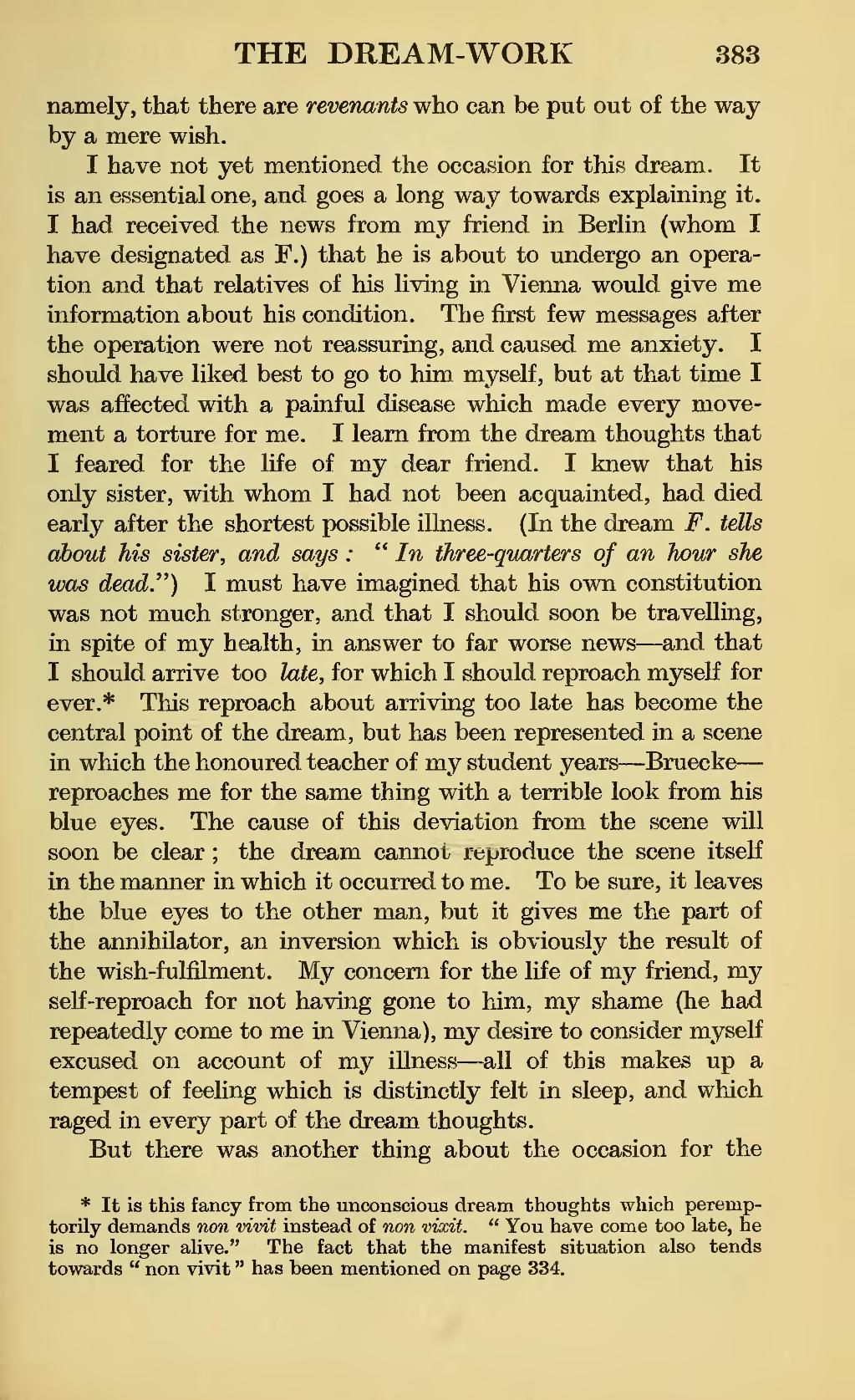namely, that there are revenants who can be put out of the way by a mere wish.
I have not yet mentioned the occasion for this dream. It is an essential one, and goes a long way towards explaining it. I had received the news from my friend in Berlin (whom I have designated as F.) that he is about to undergo an operation and that relatives of his living in Vienna would give me information about his condition. The first few messages after the operation were not reassuring, and caused me anxiety. I should have liked best to go to him myself, but at that time I was affected with a painful disease which made every movement a torture for me. I learn from the dream thoughts that I feared for the life of my dear friend. I knew that his only sister, with whom I had not been acquainted, had died early after the shortest possible illness. (In the dream F. tells about his sister, and says: "In three-quarters of an hour she was dead.") I must have imagined that his own constitution was not much stronger, and that I should soon be travelling, in spite of my health, in answer to far worse news—and that I should arrive too late, for which I should reproach myself for ever.[1] This reproach about arriving too late has become the central point of the dream, but has been represented in a scene in which the honoured teacher of my student years—Bruecke—reproaches me for the same thing with a terrible look from his blue eyes. The cause of this deviation from the scene will soon be clear; the dream cannot reproduce the scene itself in the manner in which it occurred to me. To be sure, it leaves the blue eyes to the other man, but it gives me the part of the annihilator, an inversion which is obviously the result of the wish-fulfilment. My concern for the life of my friend, my self-reproach for not having gone to him, my shame (he had repeatedly come to me in Vienna), my desire to consider myself excused on account of my illness—all of this makes up a tempest of feeling which is distinctly felt in sleep, and which raged in every part of the dream thoughts.
But there was another thing about the occasion for the
